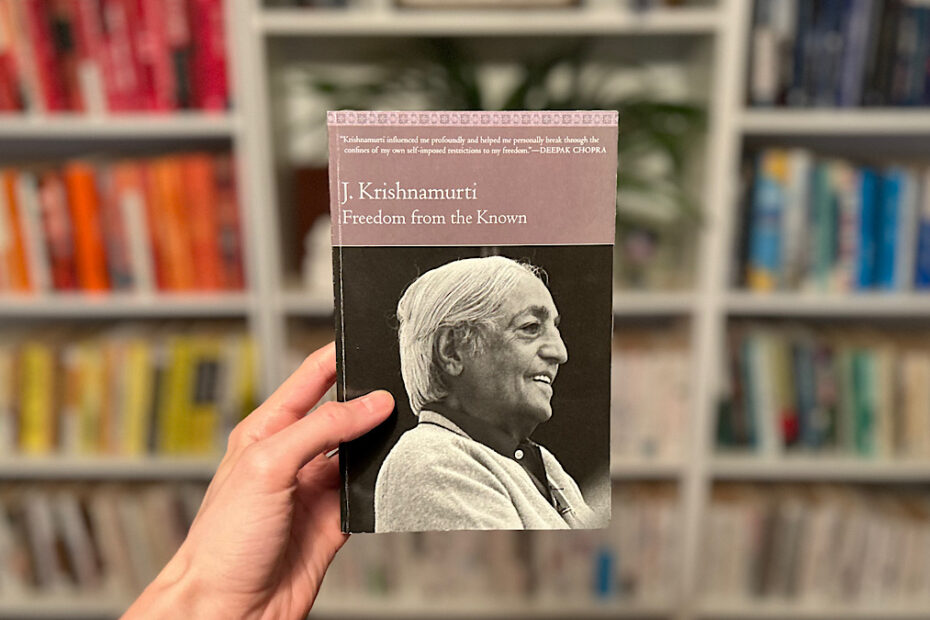“It is only when you live with something intimately that you begin to understand it. But the moment you get used to it—get used to your own anxiety or envy or whatever it is—you are no longer living with it. If you live by a river, after a few days you do not hear the sound of the water anymore, or if you have a picture in the room which you see every day you lose it after a week. It is the same with the mountains, the valleys, the trees—the same with your family, your husband, your wife. But to live with something like jealousy, envy or anxiety you must never get used to it, never accept it. You must care for it as you would care for a newly planted tree, protect it against the sun, against the storm. You must care for it, not condemn it or justify it.”
J. Krishnamurti, Freedom From The Known (Page 70)
